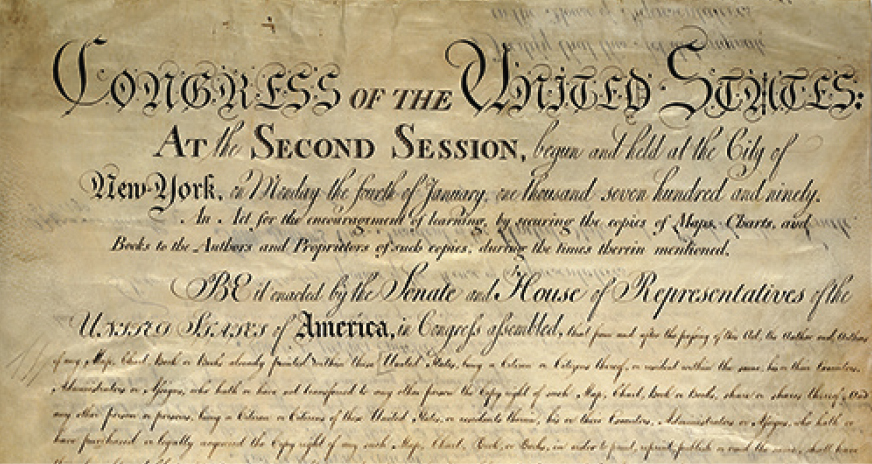
“Congress shall have the Power . . . To promote the Progress of Science and useful Arts, by securing for limited Times to Authors and Inventors the exclusive Right to their respective Writings and Discoveries.”
– United States Constitution, Art. I, Section 8
In 1790, the Constitution enshrined in American law the principle that an author of a work may reap the fruits of his or her intellectual creativity for a limited amount of time. Copyright protects through law original works of authorship including literary, dramatic, musical, architectural, cartographic, choreographic, pantomimic, pictorial, graphic, sculptural, and audiovisual creations. Today, copyright provides to an author the exclusive right to reproduce and distribute his or her work. The also provides, in the case of certain works, a right to publicly perform or display the work; in the case of sound recordings, to perform the work publicly by means of a digital audio transmission. The author may also grant to others a license to engage in these activities. The author, however, may not bar anyone from using an idea, procedure, process, slogan, principle, or discovery.
Copyright law in the United States has changed often since the Constitution granted Congress the power to provide protection to authors’ creative works. Click on the dates below to learn more about major moments in copyright.

Highlight: Congress Passes the First Copyright Act